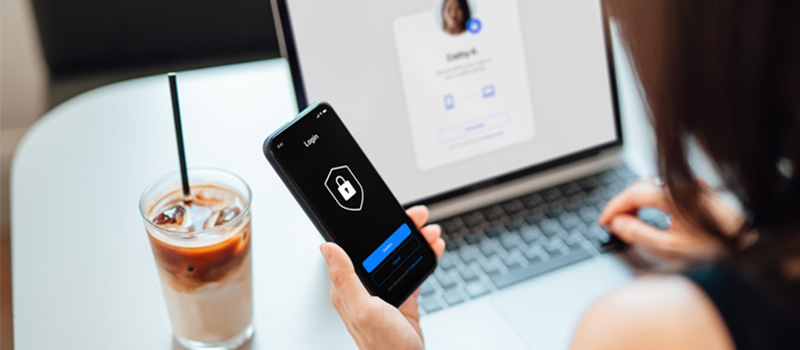How to Safeguard Your Identity
How to Safeguard Your Identity

How to Safeguard Your Identity
Per Federal Trade Commission data, identity theft is the leader among all fraud complaints it receives each year. In fact, in 2021, the FTC received more than 1.4 million complaints, which represented a 3.3% increase from a year prior.
Identity theft is defined as any instance where an individual's personal information is compromised, usually to open a credit card or bank account, obtain a loan, or make some other type of purchase. Forging government documents and benefits fraud are also popular forms of identity theft.
While many banks and credit card companies have put various security checks in place to help keep their members safe, cases of identity theft continue to rise year over year. Learn a few other measures to help safeguard your identity.
Check your credit report
This is arguably the most important — and easiest — thing you can do to safeguard your identity. Checking your credit report — even as infrequently as on an annual basis — can help you identify any fraudulent activity and spur you to take corrective action sooner. Every American is entitled to a free credit report every year from the three major credit reporting companies. Your bank or credit union can also likely provide credit updates upon request.
Freeze your credit reports
If you're aware of a data breach and believe your information may have been compromised, one way to safeguard your identity is to freeze your credit report. Doing so will prevent anyone other than you from opening up a new account or line of credit in your name. Freeze your credit reports by contacting each of the credit reporting bureaus on the phone or online via a secure personal identification number. Then, when you're ready to open up a new account, you can temporarily unfreeze it.
Protect your online passwords
Using a password manager, password protecting your devices, or using two-factor authentication when you're able can help keep confidential personal information more secure. The aforementioned are also much safer than saving or storing passwords in your web browser.
On a related note, a key step in safeguarding your online footprint is ensuring computer software, mobile software and operating systems are up to date on your devices.
Be careful with confidential information and documents
Keep confidential documents such as birth certificates, Social Security cards and passports in a safe location within your home, such as a fireproof safe deposit box, rather than in your purse or wallet. Your mail could also become a liability, especially medical bills and financial documents that might include personal information. Be sure to shred anything that contains personal information before discarding it.
Consider identity theft protection
Many insurers now offer identity theft coverage as an add-on to homeowner's insurance policies that cover expenses incurred to restore your identity in the event that it's been stolen. Coverage varies by policy but may include loss of wages, various fees, identity theft monitoring and more.
Content on this page is designed for general information and/or entertainment purposes. It is not intended to provide legal or any other type of advice and is not meant to be a thorough discussion of every issue that a person should consider or may encounter. Unless expressly referenced, we are not affiliated with any company or app that may be referenced herein and we do not endorse them. We are not responsible or liable for the user's reliance on this content or for the availability of links to other websites or resources, or for advertising, products, services or other materials on or available through these websites or resources. Any reference to third party rates or products is for identification only and is subject to change without notice.
